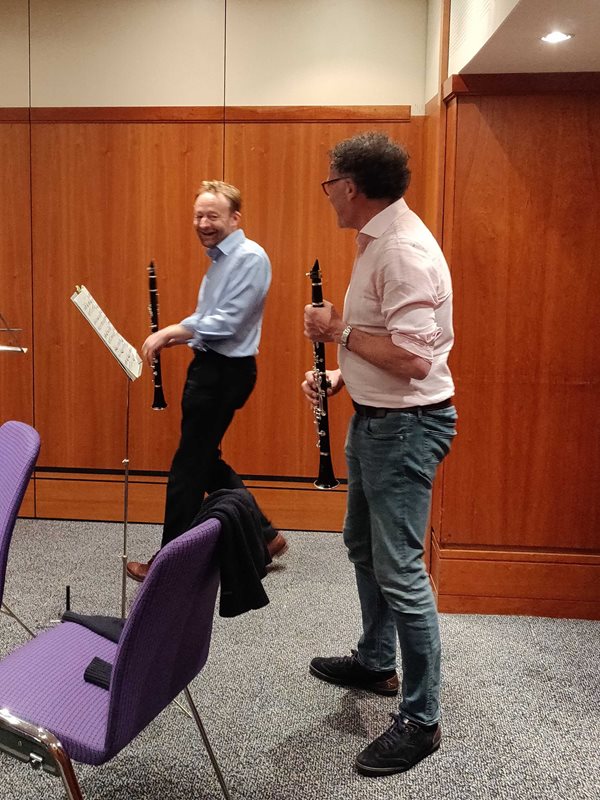Professor Adam Cohen completed his term as Editor-in-Chief of the British Journal of Clinical Pharmacology (BJCP) in December 2019. In this Q&A, he looks back at his time at the journal and has a few thoughts about the future.

Thank you for agreeing to talk to us about your time as the Editor-in-Chief (EiC) of BJCP! You’ve been associated with BJCP for years, as an author, reviewer, and of course editor. What trends in clinical pharmacology have you observed? What do you think the big topics will be over the coming 30 years?
Clinical pharmacology started in the 1960s, when medicine and therapy were totally different from now. You can see the evolution of the specialty clearly in the type of papers in the journal. They moved from very elegant, experimental work – a sort of animal pharmacology in humans – to the much broader range of papers we publish now, which includes epidemiology, pharmacoeconomics, and regulatory and practical pharmacotherapy. I predict that in the future we will become increasingly less pharmacocentric, as we realise that disease management is a mix of lifestyle, food, devices, good health-care systems and medicines, but none of these alone. Most of these components will benefit from the mechanistic approach that pharmacology brings us.
In your farewell Editorial, you mention an instance of ‘peer review fraud’ that occurred during your time as Editor-in-Chief. The article BJCP published about that case was praised for its transparency and honesty. That it was seen as unusually open suggests that the inner workings of journals are shrouded in mystery to those who don’t work in scientific publishing. Do you think this is the case? And is there anything about the role of an Editor-in-Chief that you think is not widely known or understood?
The peer review fraud was one of the luckily rare cases that you realised that a major goof up occurred on your watch. Someone once taught me that there is only one way at such a moment – throw open all the windows. We did! Some lawyers that got involved tried to block this, but I persisted and turned something bad into a lesson for others. As an author myself, I agree that you always look at the editorial process with some suspicion, but on the whole I think it is pretty well balanced and accountable in the reputable journals. Although I am for openness, I also think that a professional process must be allowed to operate without continuous attention. I tend to leave the pilots of a plane to fly it around without continuously wanting to see what they do.
However, we need to realise the big responsibility we have to steer the peer-review process so that it is fair, never discouraging, careful, and fast. As EiC, I felt my main job was to oversee this whole process rather than checking every paper myself, but there are many ways you can do the job. I just hope no one thought I was only guarding the shop…
We know you’re a vocal advocate of internationalism, collegiality and collaboration in research. What do you see as the British Pharmacological Society’s role in supporting this?
My tenure at BJCP as an editor coincided with the TGN1412 and BIAL studies that induced severe damage and even death in healthy people. The TGN1412 data were made (partly) public quickly and the BIAL data have remained secret until today. We vociferously made the point in the journal and with the BPS that the secrecy around these cases was a scandal. I strongly believe that, in such situations, we should act independently as scientists and our journals are the ideal medium to voice such positions. So in those cases I am in favour of opinionated material in our journals. BJCP is a very international journal and reflects what is really happening in the world. There is a huge amount of unfinished work on this planet to improve knowledge about medicines and patient management. We need to work together, and the coming generation knows this very well. Trends towards the separation of countries or creation of borders is something I am horrified by, perhaps because I come from a country and a family that experienced the results of all this in the recent past. I got a large part of my education and training in the UK and this is why I was downcast on January 31 2020, when many British politicians triumphantly rejoiced in having finally established such a separation.
What has been your favourite moment or thing to happen in your time as EiC?
Perhaps my most favourite thing is what did not happen – I have been on the senior editorial board as an editor and EiC and we have never had any conflict that needed resolving. When I joined there were some rather acrimonious discussions going on with the British Journal of Pharmacology, but Amrita [Ahluwalia, EiC of BJP] and I ended those immediately and they never recurred. My favourite moment was when we established the joint editorial dinner and you saw a large group of friends having a good time – this is how all my time with BJCP felt.
Is there anything you wish you’d been able to do?
I only discovered late in my tenure that Andy Webb [Senior Editor on the BJCP Editorial Board] was a clarinettist, like me. We should have found out earlier to play together more often – but we may come back! This announcement may of course seriously affect attendance at the next editorial dinner.

Adam Cohen and Andy Webb warming up at Pharmacology 2019
And finally, what changes do you predict/would you like to see in scientific publishing?
We need commercial publishers, but the business model is reaching its end. Just watch the music industry or book shops and you will see. The solution is not in increasingly complex, open-access payment models but in producing journal articles that people like to read. Our customers are authors and readers and if we serve them excellently, the money will follow.
Comments
If you are a British Pharmacological Society member, please
sign in to post comments.